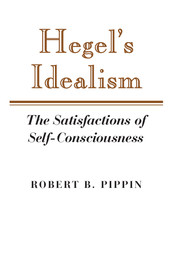Book contents
6 - Overcoming consciousness
Published online by Cambridge University Press: 05 June 2012
Summary
Demonstratives, descriptions, and theories
Hegel begins the PhG proper with a three-part section called “Consciousness.” Despite his long, highly metaphorical, and expansive Preface and his short, abstract Introduction, he launches into the first part of this section without much explanation about why we begin as we do and with no explicit discussion of what exactly this first chapter is about. From his introductory remarks, we know that this section should begin the phenomenological justification of the standpoint of Absolute Knowledge, and although we do not begin with any clear picture of what the goal of Absolute Knowledge is supposed to be, from our look at Hegel's predecessors and at his transformations of those predecessors, we know that it somehow involves an ideal subject's knowledge of itself, or its own fundamental Notions, a selfknowledge that has managed to overcome the deep assumption of natural consciousness that any such reflection of self-consciousness must be only a form of self-knowledge, forever incapable of establishing any identity between such a subject and objects as they really are.
So the question becomes: How does this first chapter, apparently focused on a highly specific epistemological position, “Sense Certainty, or the This and Opining,” begin to deal with this concept? We know from Hegel's organization that this is the first moment of an analysis of “Consciousness,” and that, at least, tells us something. Hegel has already made it clear, in the Introduction, that consciousness for him always involves both a “relation to” and a “distinguishing from” an object, that this relation to and distinguishing from is something consciousness does.
- Type
- Chapter
- Information
- Hegel's IdealismThe Satisfactions of Self-Consciousness, pp. 116 - 142Publisher: Cambridge University PressPrint publication year: 1989



